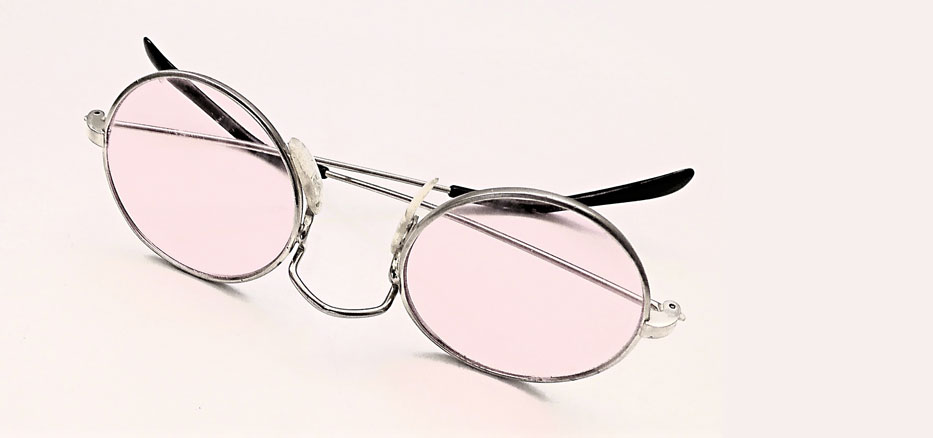Besides beginning the study of the innate temperament trait of High Sensitivity in 1991, Dr. Elaine Aron, along with her husband Dr. Arthur Aron, are two of the leading scientists studying the psychology of love and close relationships. Site: The Highly Sensitive Person >
If you are a highly sensitive person, here are some of your cards:
NATURAL
NATURAL
It is innate. In fact, biologists have found it in over 100 species (and probably there are many more) from fruit flies, birds, and fish to dogs, cats, horses, and primates.
MISUNDERSTOOD
MISUNDERSTOOD
Your trait is normal. It is found in 15 to 20% of the population; too many to be a disorder, but not enough to be well understood by the majority of those around you.
DIFFERENT
DIFFERENT
This trait reflects a certain type of survival strategy, being observant before acting.
The brains of highly sensitive persons (HSPs) actually work a little differently than others’.
PROFOUND
PROFOUND
You are more aware than others os subtleties. This is mainly because your brain processes information and reflects on it more deeply. So even if you wear glasses, for example, you see more than others by noticing more.
IMMEASURABLE
IMMEASURABLE
You are more easily overwhelmed. If you notice everything, you are naturally going to be overstimulated when things are too intense, complex, chaotic, or novel for a long time.
UNDERESTIMATED
UNDERESTIMATED
In cultures where it is not valued, HSPs tend to have low self-esteem.
They are told “don’t be so sensitive” so that they feel abnormal.
We feel everything, often to an extreme, and have little guard up between ourselves and others. As a result, we often become overwhelmed by excessive stimulation and are prone to exhaustion and sensory overload.
The key to self-care is to quickly recognize the first signs of experiencing sensory overload or when you start absorbing negativity or stress from others.
Dott.ssa Judith Orloff is a psychiatrist, an empath. best-selling author of The Empath’s Survival Guide: Life Strategies for Sensitive People.

Living as a highly sensitive person means getting a thousand nuances in every detail. It means feeling immersed by stimulation both from the inner and the outer world. It means knowing how to deal with a process of overloading. It means having a particular inclination to a deep ability in observing, to the elaboration and association with concepts and situations, especially the social ones. It means being moved easily or feeling tired and irritable when there’s an excess load. It means feeling every little thing more intensely, both the good ones and the bad ones, and making a big effort to make the others realize that. It also means tending automatically to anticipate the needs from who is around, taking care of people and situations and, at the same time, struggling to stay focused on personal needs. Usually it also means feeling different and often misplaced. Being too much: too sensitive, too susceptible, too profound, too reflective, too tired, too slow, too fast, too emotional. Luckily, sometimes, we are also told to be great confidants. People who talk to us say that they feel free to speak about themselves whenever they want when they are around us. As well, they say that we tend to live, by nature, in harmony; we are caring towards the others and we are particularly meticulous. They say that we give the max in profound situations. They say that we have great talents and immense creativity.
Dott.ssa Elena Lupo – Psychologist, Highly Sensitive Person


People with overexcitabilities off the charts have a higher level of “potential development” than others. This overexcitability nourishes, enriches, enhances and amplifies their talents.
Dr. Dabrowski’s OE Theory – Psychiatrist

A highly sensitive person lives as he/she wears glasses which zoom and amplify everything it happens, both from the inside and the outside. It seems like everything comes with a higher volume, especially the social and emotional aspects.
Dr. Elena Lupo – Highly Sensitive Person, Psychologist and Psychotherapist. Licensed Therapist HSP-Knowledgeable Advanced Training HSP Consultant
www.personealtamentesensibili.it
As we have come to know, Highly Sensitive People’s systems are very porous, meaning that external stimuli seem to be more directly absorbed into their bodies. (It has been said that it is as if HSP “have no skin” to protect them from these outside stimuli.) Non-HSP generally are
less porous and have natural defenses which defuse external stimuli thereby not directly impacting and overloading their nervous systems.
Jim Hallowes www.highlysensitivepeople.com

Are you a Highly Sensitive Person?
In the following text, you will find a list of some highly sensitive people’s distinctive features. It is exclusively for the record and orientative but, if you want, you might as well take the test. If you notice you have some of these features it is possible you are hypersensitive. 1 out of 5 is hypersensitive.
• Propensity to stand on the sidelines of a situation in the exact moment before dealing with it. The exploration comes first through observation and reflection
• Great awareness both of the details and the smallest changes
• Taking into account every consequence before acting: “do it one time and do the best”.
• Perception of others’s feelings and emotions, by foreseeing non-verbal details.
• Great ability of empathy and emotional connection.
• A higher impact on the emotional surrounding environment, both in a positive and in a negative way, in childhood and adulthood.
• A way of acting which is particularly meticulous and a great consideration of the bond between causes and consequences.
• A strong intolerance and upset related to injustices. Environmental concerns and sympathy.
• Frequent overstimulation and an overload by hyperactivation (worse performances) or by hypoactivation (boredom): a balance is needed.
• Talent, passion and attraction to art.
• Interest in less material issues such as the more profound and spiritual ones.
• Great emotional responsiveness to events: subjectively more intense than the one owns by the others.
• Specific stress related to changes.
• Vivid and detailed dreams.
• Acknowledgement of such features since childhood.
• Overstimulation in settings with intense lights and noises (this aspect might not arise during adolescence).
• Frequent physical reactions. More immune system response, a particular pain sensitivity. A major sensitivity to medicines and stimulants.
• A preference to indirect communication, which takes into account a possible response in the interlocutor.
• A strong, deep and relaxing relation with nature. Attachment to animals and plants. A sense of delight to be in or next to the water.
• 70% introverted; 30% extroverted.
Source: http://www.personealtamentesensibili.it/sei-ipersensibile/
D
Depht of processing
we process more deeply pieces of information
D
O
Overstimulating
we are easily susceptible to overstimulation and
overload
O
E
Emotional responsiveness empathy
we are able to easily establish an emotional connection.
E
S
Sensitive to subtle stimuli
we perceive subtle details that others don’t
from the environment and the social relations
S

People who belong to the same tribe
Some Highly Sensitive Celebrities:
Albert Einstein, Carl Jung, Emily Dickinson, Ralph Waldo Emerson, Charles Darwin, Abraham Lincoln, Katharine Hepburn, Spencer Tracy, Woody Allen, Orson Welles, Walt Disney, Ansel Adams, Nicole Kidman, Steven Spielberg, Jane Goodall, Warren Buffett, Barbara Streisand, Michael Jordan, Elton John, Bob Dylan, John Lennon, John Denver, Jim Morrison, Alanis Morisette, Princess Diana…

Sensitive Shield.
Creative Seminar exclusively dedicated to Highly Sensitive People
“Make good boundaries your goal.
They are your right, your responsibility,
your greatest source of dignity.“
Elaine N. Aron – Psycologist HSP
“Working on boundaries means reinforcing our psychic skin: the skin of our sensitivity”
Nicoletta Travaini – Psicologa HSP




